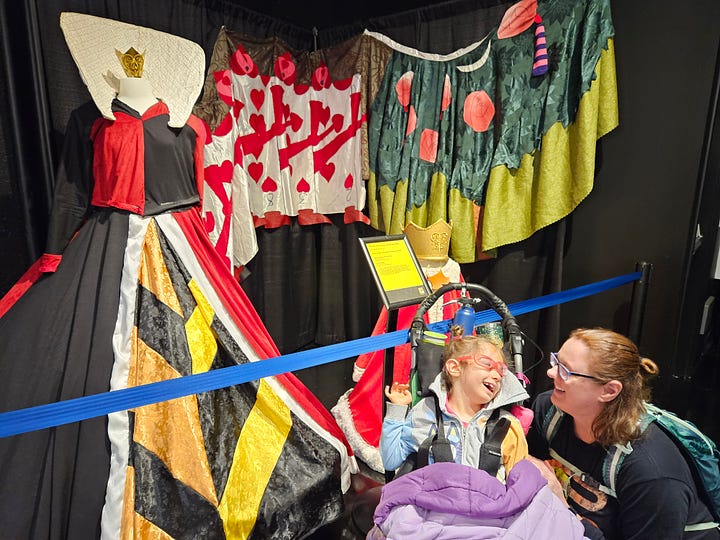Sorry for missing a few days! We went on a small trip to San Diego, and I didn’t have time to write.


We’ll never fully grasp the enormity of God. The Holy Trinity is much to big for that; it’s why we call it a mystery.
But that doesn’t mean we should stop trying to understand. That we should give up, and settle for half-truths or partial lies.
Reading 1
Acts 6:8-15
Stephen, filled with grace and power, was working great wonders and signs among the people. Certain members of the so-called Synagogue of Freedmen, Cyreneans, and Alexandrians, and people from Cilicia and Asia, came forward and debated with Stephen, but they could not withstand the wisdom and the Spirit with which he spoke.
Then they instigated some men to say, "We have heard him speaking blasphemous words against Moses and God." They stirred up the people, the elders, and the scribes, accosted him, seized him, and brought him before the Sanhedrin.
They presented false witnesses who testified, "This man never stops saying things against this holy place and the law. For we have heard him claim that this Jesus the Nazorean will destroy this place and change the customs that Moses handed down to us." All those who sat in the Sanhedrin looked intently at him and saw that his face was like the face of an angel.
There’s a phrase Michael Malice likes to use: Factual, but not truthful. Stephen was saying these things—he did say that Jesus would destroy the temple and change the customs.
But of course, we know these are false characterizations. Jesus was speaking of Himself when He said He would destroy the temple and rebuild it in three days. He changed the customs, but not the law, except insofar as to make the law more demanding than Moses.
They used partial quotes and half-truths in order to stir up the people and the Sanhedrin, because they couldn’t actually face a Christian filled with the Holy Spirit.
Responsorial Psalm
Ps 119:23-24, 26-27, 29-30
R. Blessed are they who follow the law of the Lord!
Though princes meet and talk against me,
your servant meditates on your statutes.
Yes, your decrees are my delight;
they are my counselors.
R. Blessed are they who follow the law of the Lord!
I declared my ways, and you answered me;
teach me your statutes.
Make me understand the way of your precepts,
and I will meditate on your wondrous deeds.
R. Blessed are they who follow the law of the Lord!
Remove from me the way of falsehood,
and favor me with your law.
The way of truth I have chosen;
I have set your ordinances before me.
R. Blessed are they who follow the law of the Lord!
Although obviously written centuries before Acts, the Psalmist is praying to be like Stephen, and not his debate opponents. He asks God to help him under the scriptures. It doesn’t matter who’s talking against him, even if they’re princes.
He will meditate on God’s statutes, because they’re not necessarily easy to understand. He doesn’t want a false or incomplete understanding, so he asks God to explain. Simply reading the words isn’t enough; the scribes and the Sanhedrin did that. We need the help of the Holy Spirit to accept the truth and avoid even half-falsity.
Alleluia
Mt 4:4b
R. Alleluia, alleluia.
One does not live on bread alone
but on every word that comes forth from the mouth of God.
R. Alleluia, alleluia.
We don’t live on bread alone; that phrasing tells us that we still need bread. It’s okay to have Earthly concerns, as long as they’re not our only concerns.
Gospel
Jn 6:22-29
After Jesus had fed the five thousand men, his disciples saw him walking on the sea. The next day, the crowd that remained across the sea saw that there had been only one boat there, and that Jesus had not gone along with his disciples in the boat, but only his disciples had left. Other boats came from Tiberias near the place where they had eaten the bread when the Lord gave thanks. When the crowd saw that neither Jesus nor his disciples were there, they themselves got into boats and came to Capernaum looking for Jesus. And when they found him across the sea they said to him, "Rabbi, when did you get here?"
Jesus answered them and said, "Amen, amen, I say to you, you are looking for me not because you saw signs but because you ate the loaves and were filled. Do not work for food that perishes but for the food that endures for eternal life, which the Son of Man will give you. For on him the Father, God, has set his seal."
So they said to him, "What can we do to accomplish the works of God?"
Jesus answered and said to them, "This is the work of God, that you believe in the one he sent."
Jesus says we shouldn’t focus so much on feed that spoils or, at best, leaves us hungry again in a few hours. (Even Moses’ manna does.) Jesus instead wants to give us eternal life. And to do that, we must believe. Everything starts there; we can’t act without first believing.



